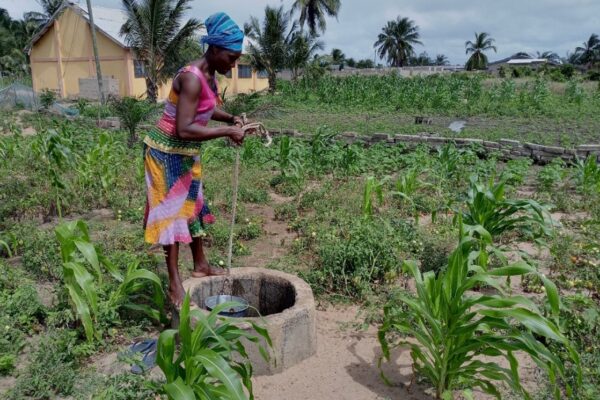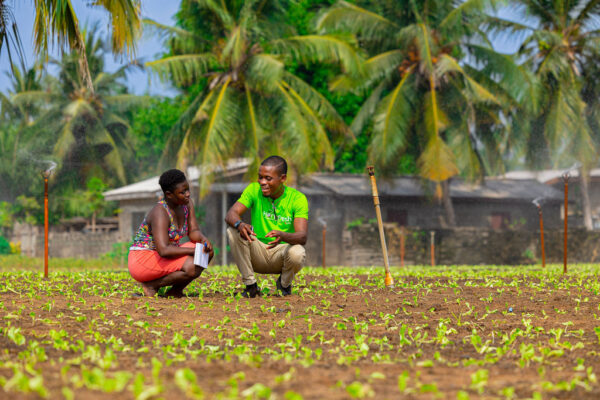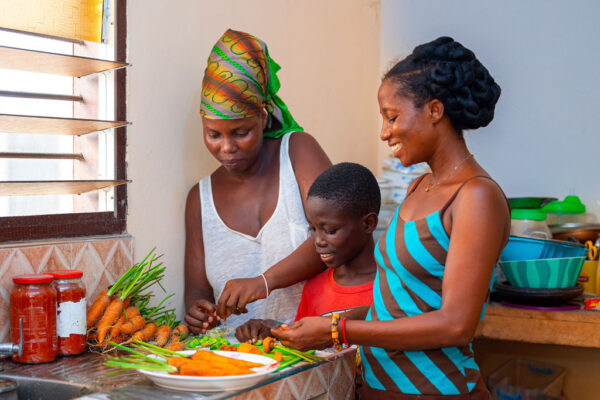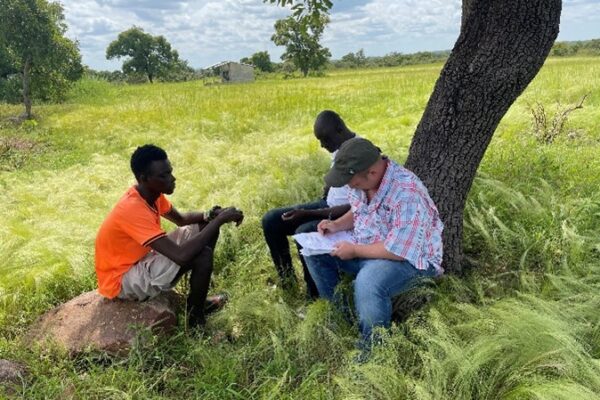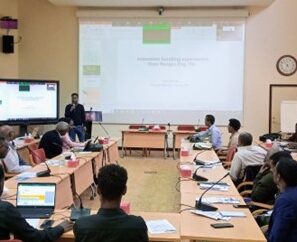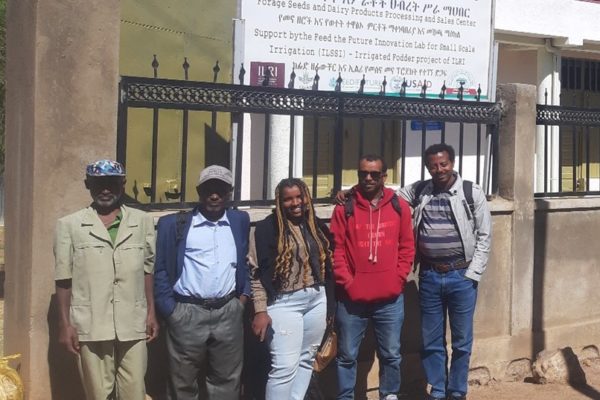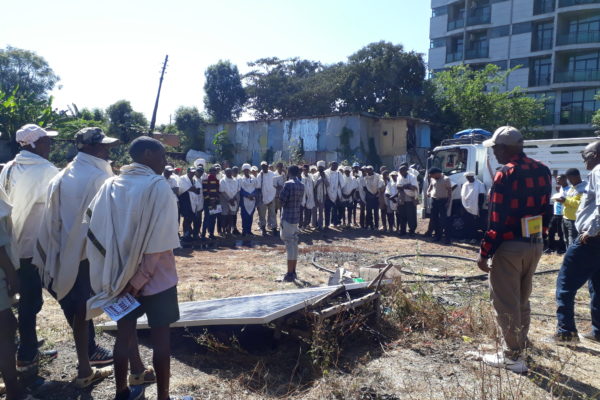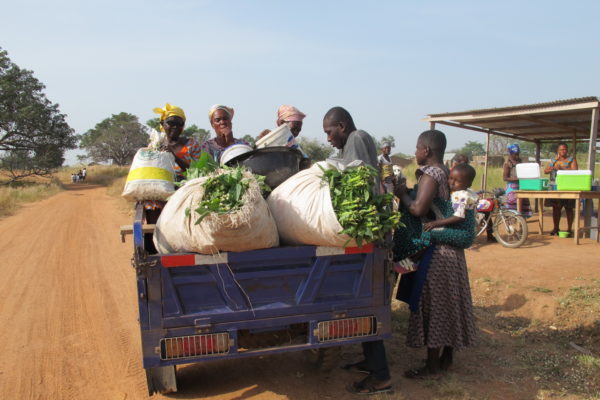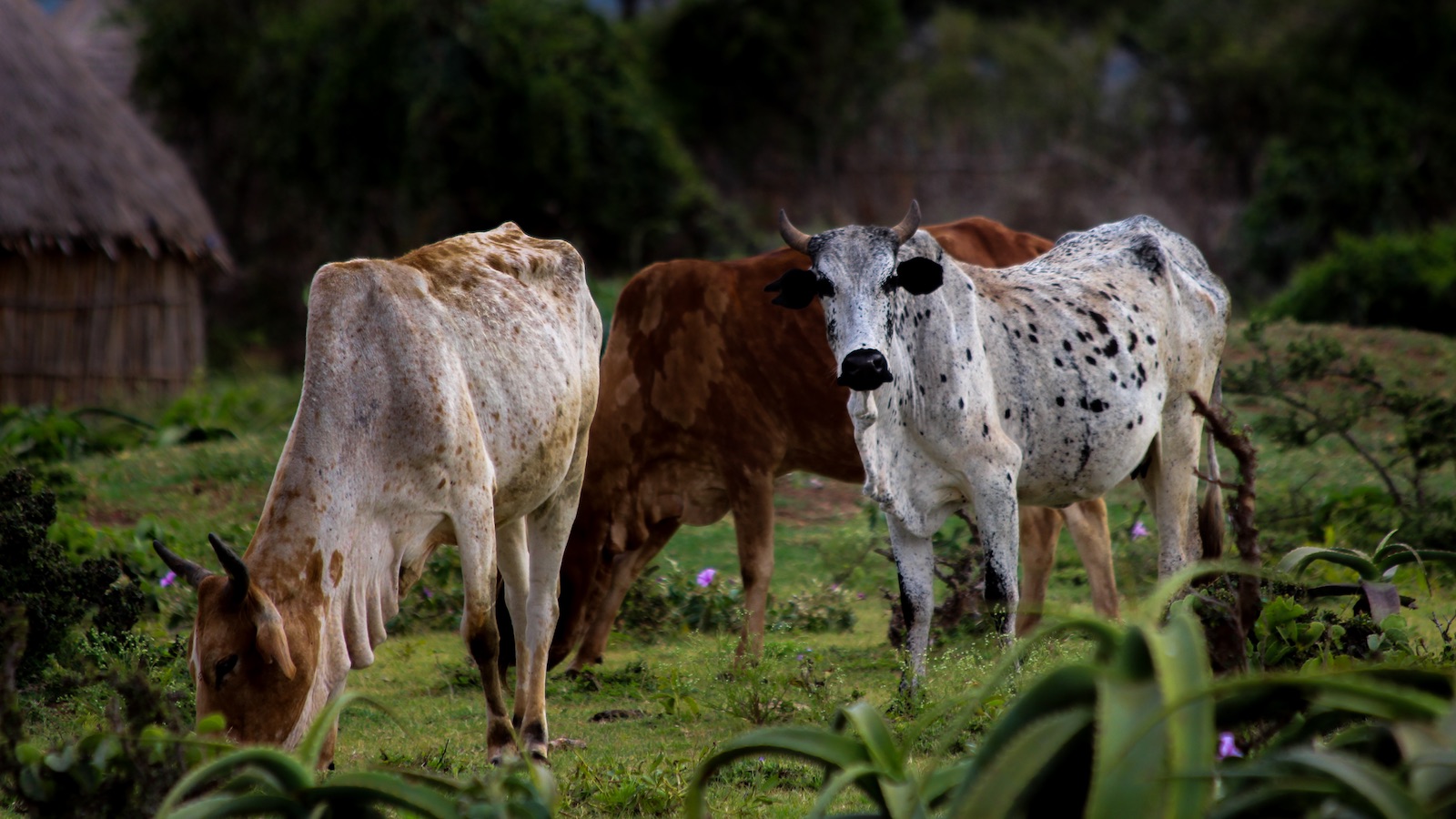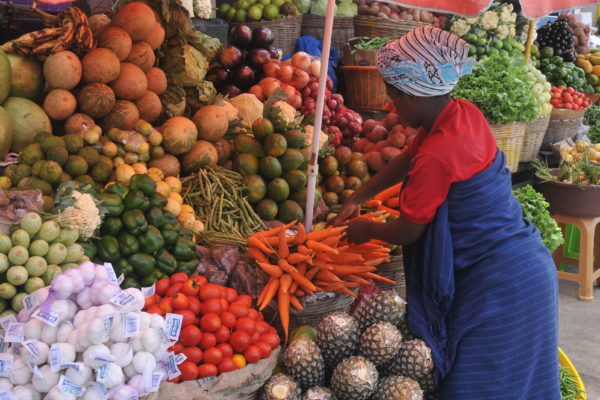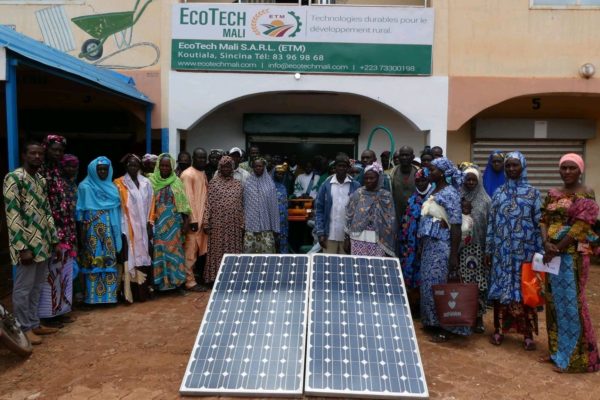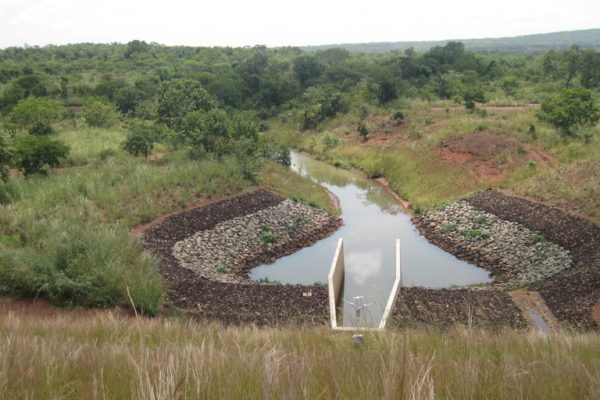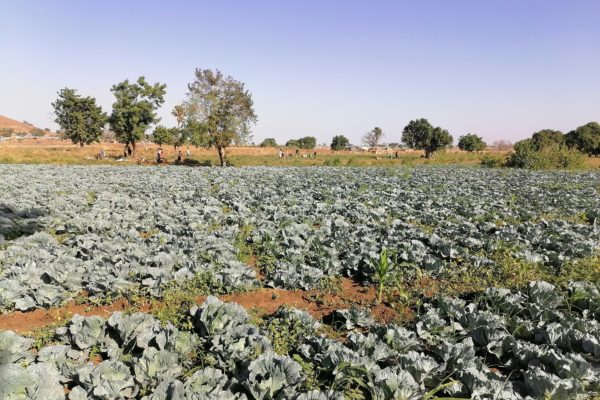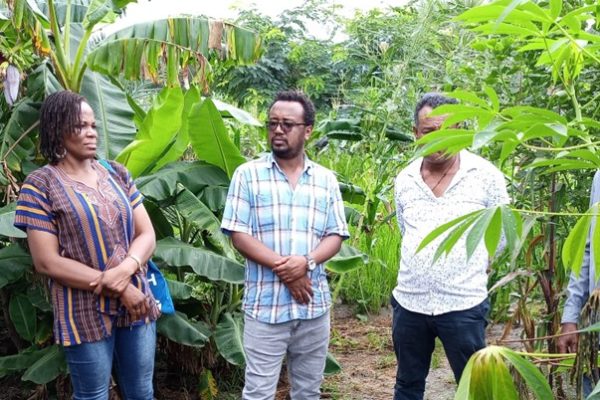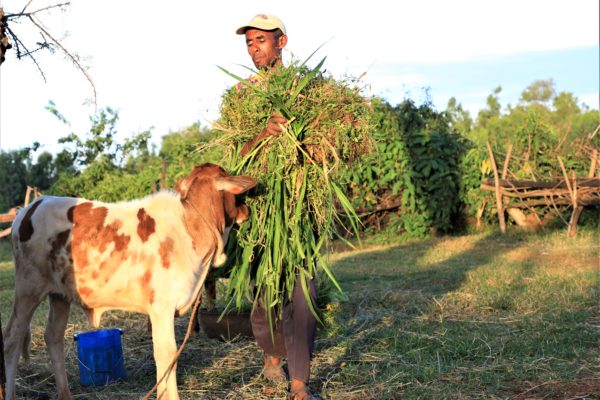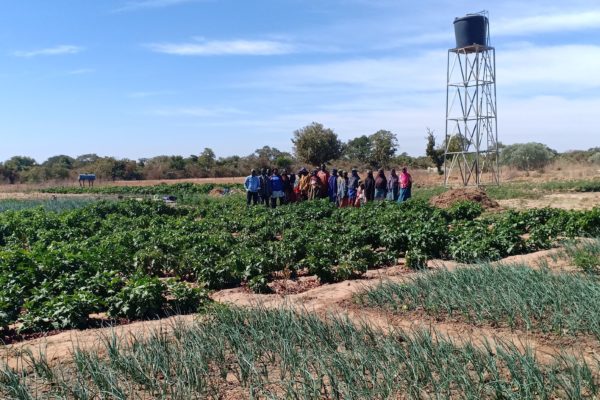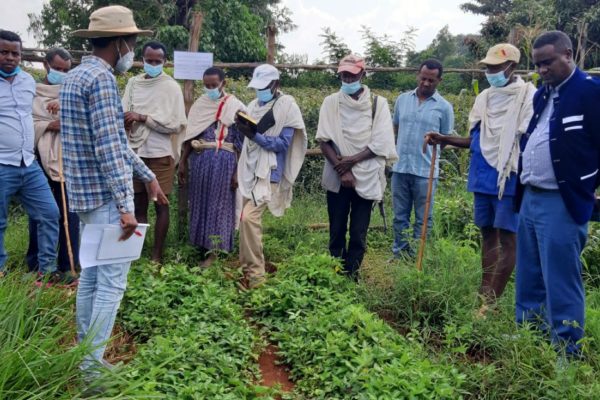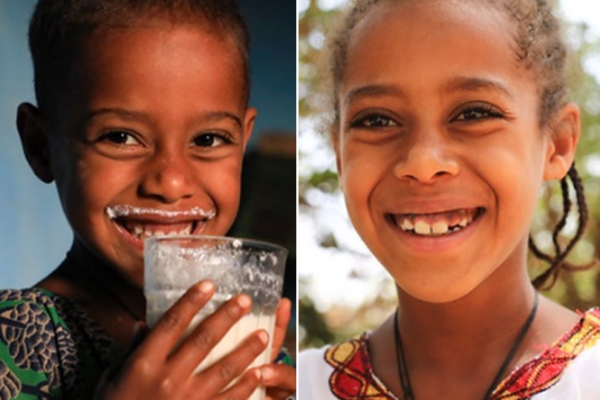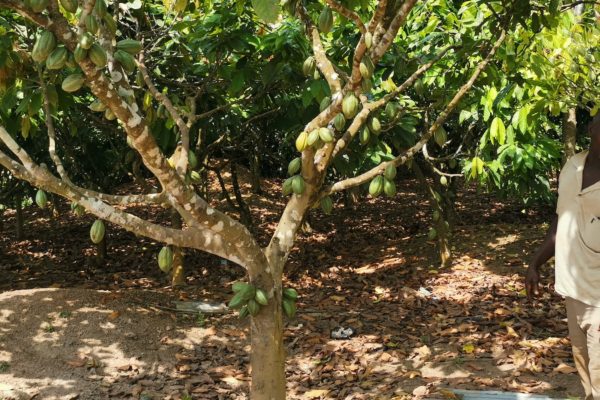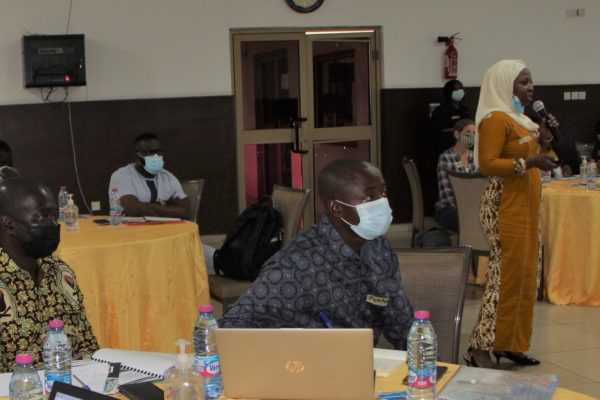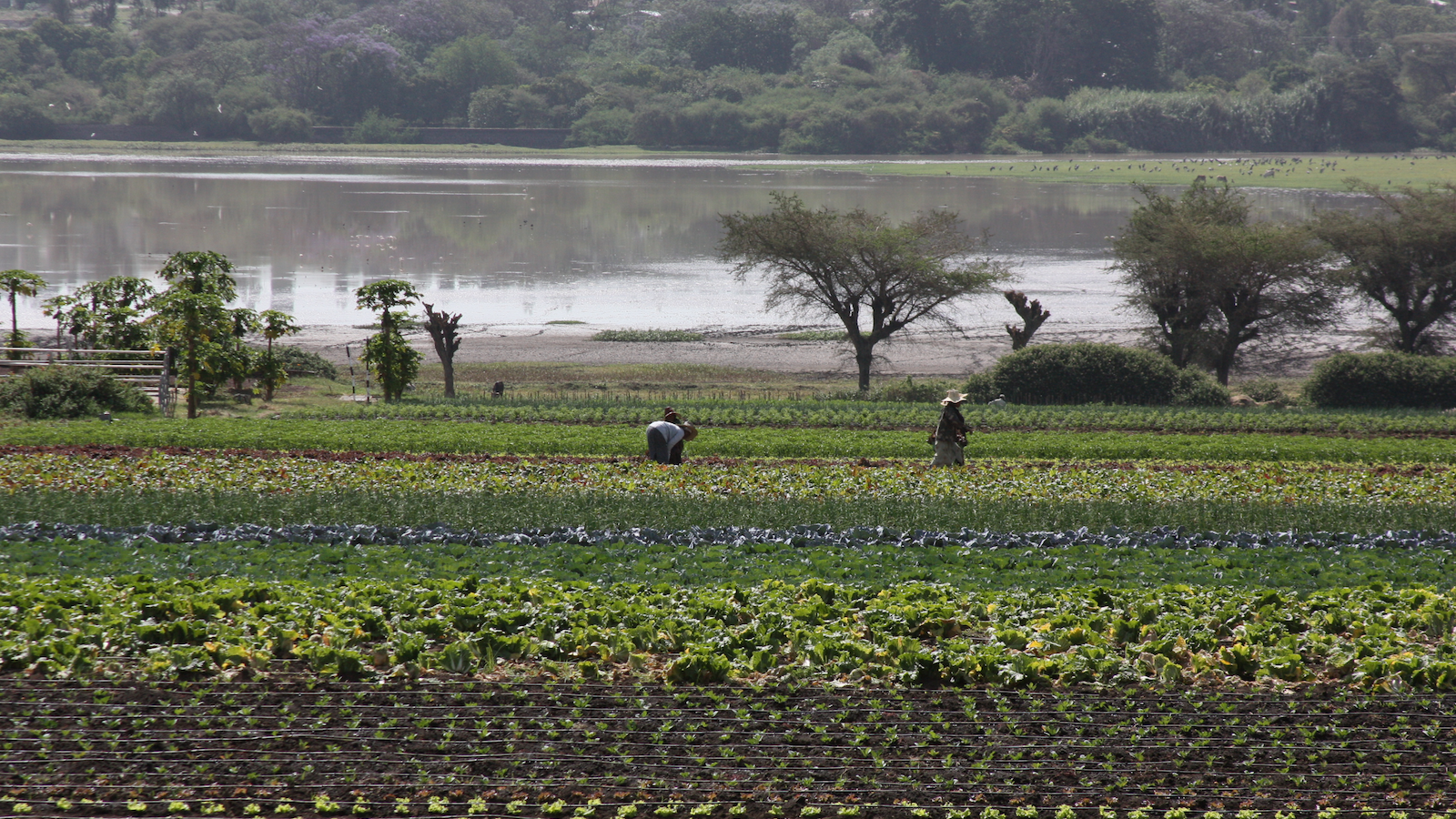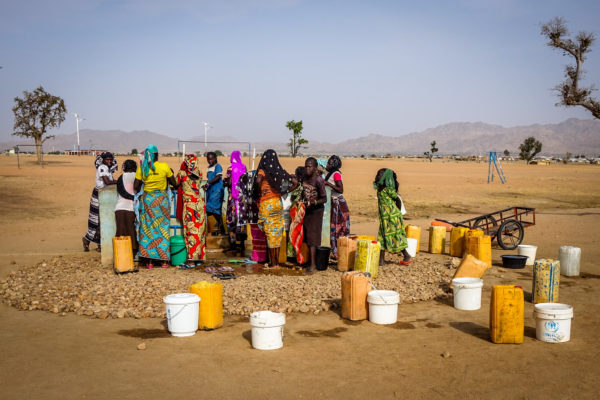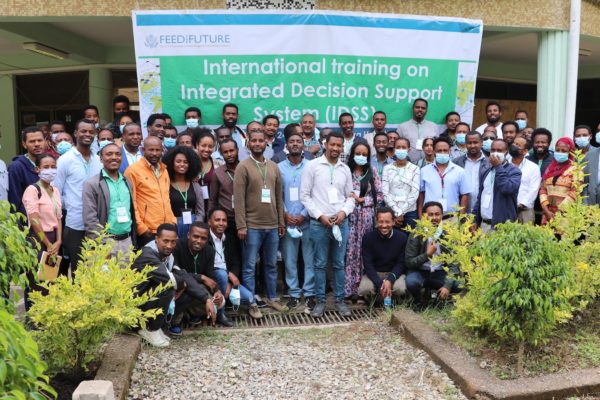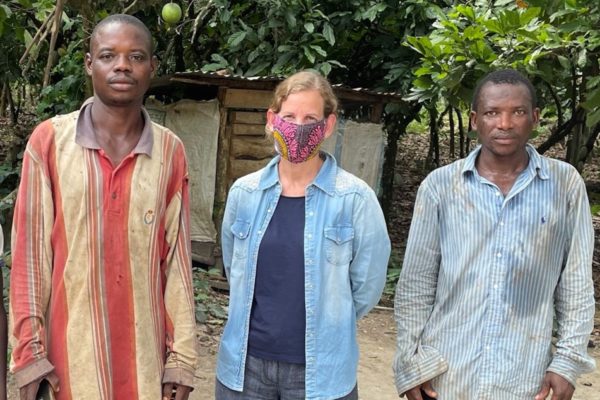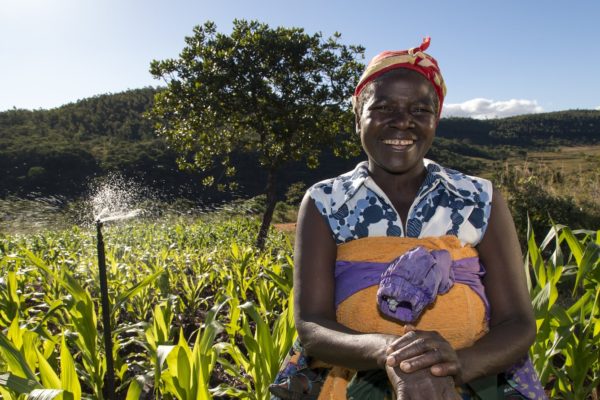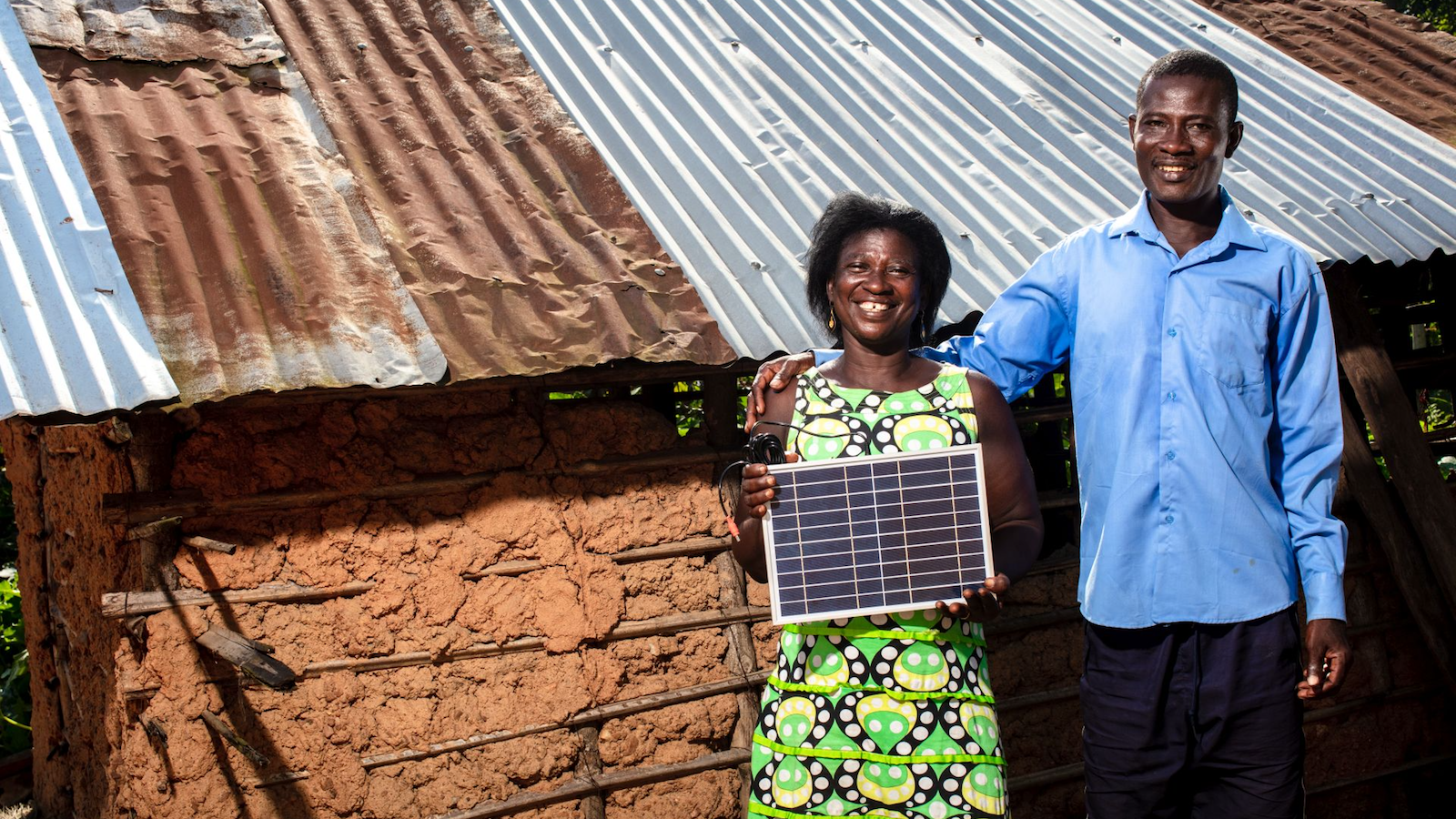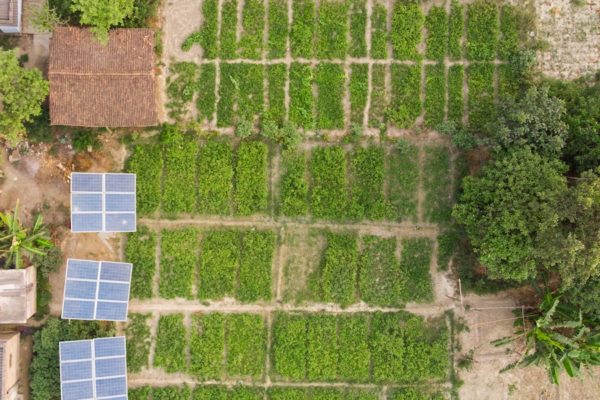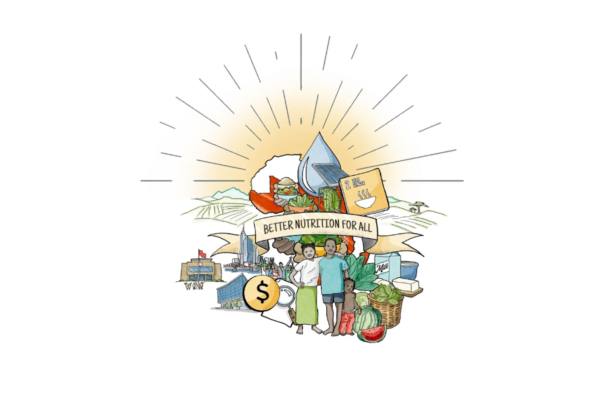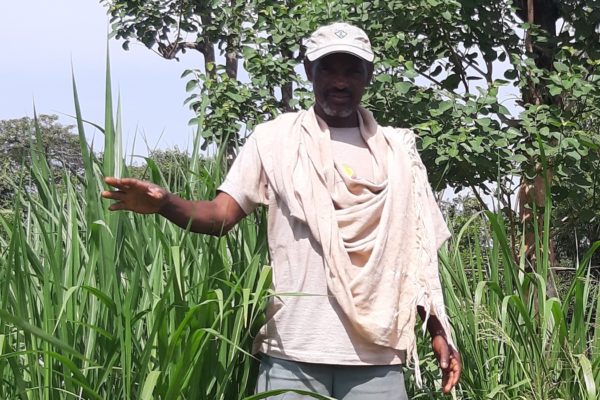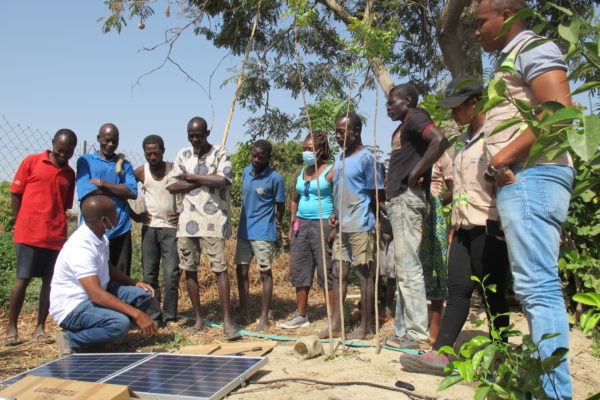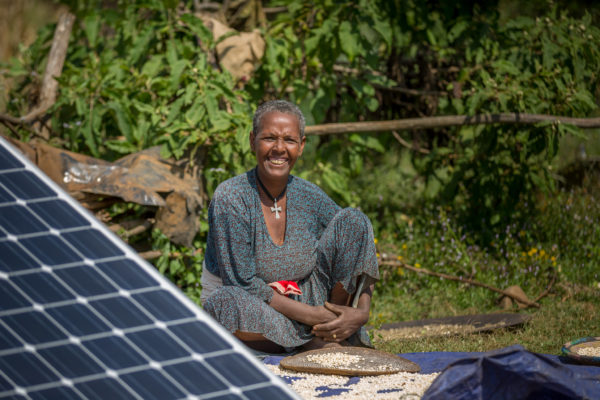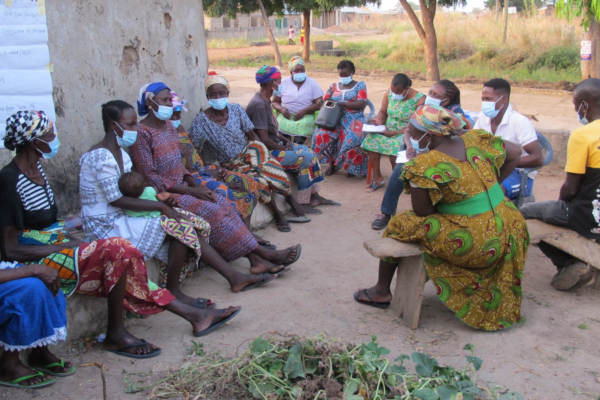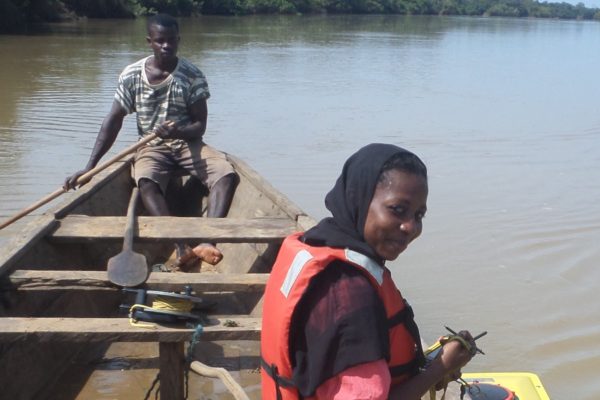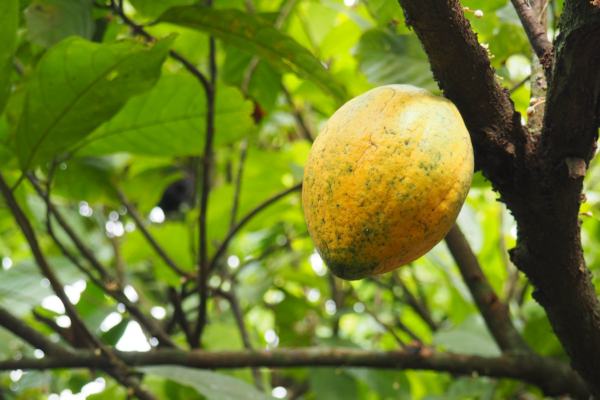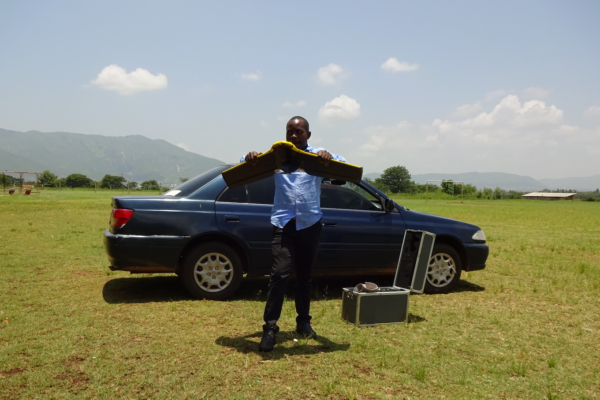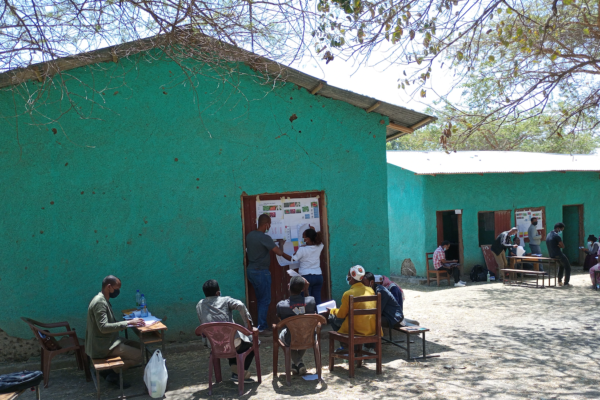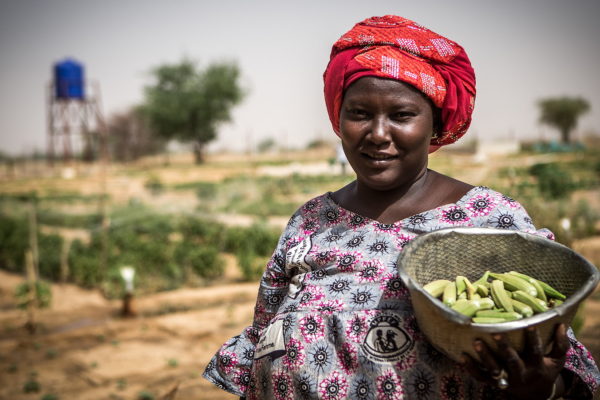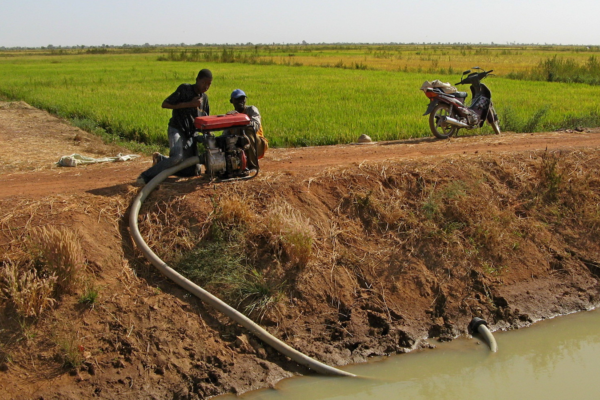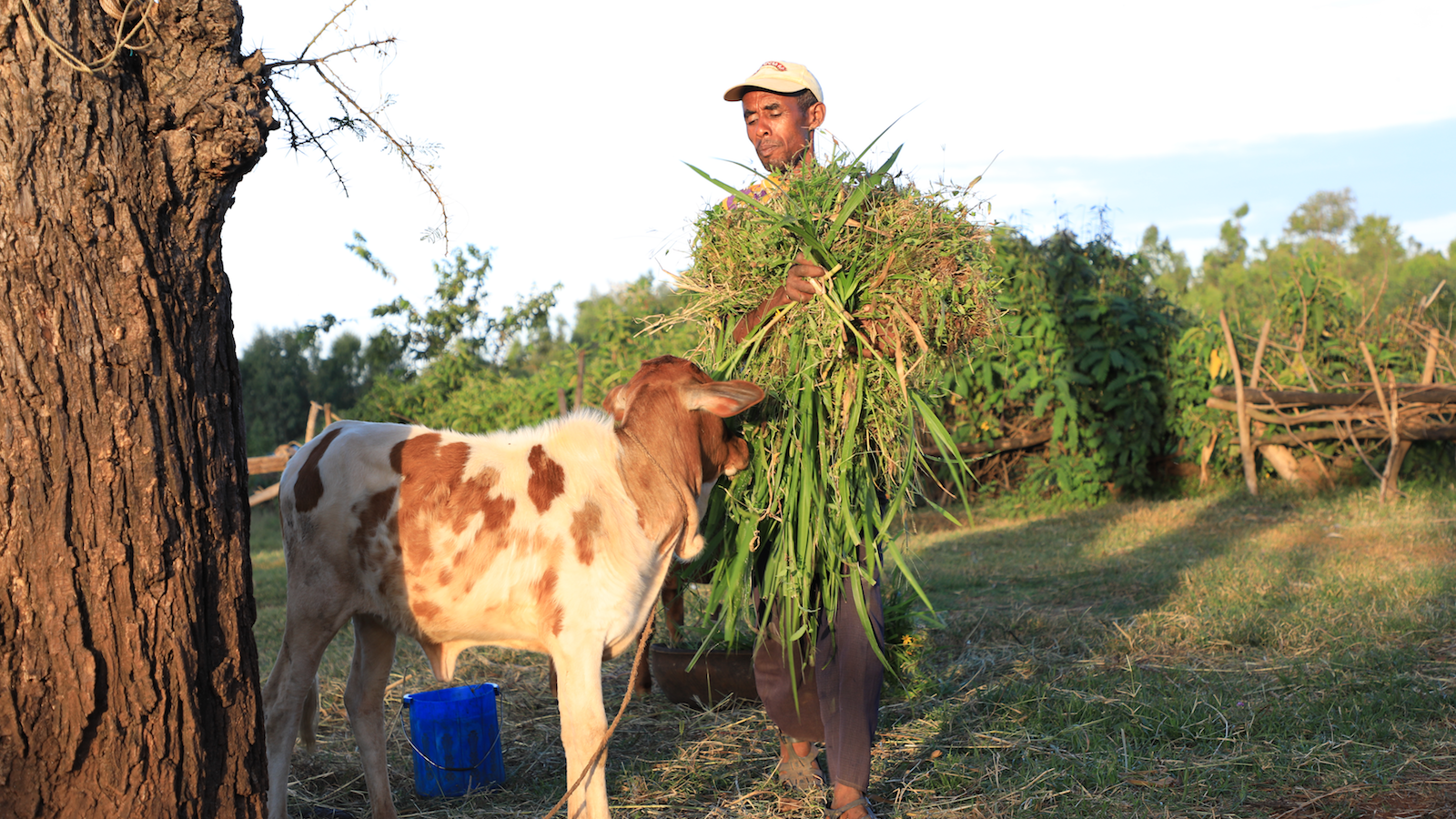Enhancing Groundwater Governance through Experimental Games in Ghana
by Emmanuel Obuobie*, Claudia Ringer*, Hagar El Didi*, Wei Zhang* Thousands of farmers living in the Keta and Anloga districts of Ghana depend on groundwater from the Keta strip for producing vegetables and other food crops for consumption and income generation. The Keta strip lies…
Continue Reading Enhancing Groundwater Governance through Experimental Games in Ghana
ILSSI knowledge sharing workshop in Ethiopia
by Melkamu Derseh, International Livestock Research Institute On 25 May 2023, ILSSI organized a workshop in Addis Ababa, Ethiopia to share findings and lessons from the ten years of research for development work under the program. Attended by more than 80 participants from within and…
Continue Reading ILSSI knowledge sharing workshop in Ethiopia
Unlocking the potential of irrigation for improved nutrition in Ethiopia
Kaleab Baye, Associate Professor, Center for Food Science and Nutrition, Addis Ababa University and ILSSI collaborator on irrigation-nutrition linkages Claudia Ringler, Director, Natural Resources and Resilience, International Food Policy Research Institute, ILSSI collaborator and co-lead NEXUS Gains Poor nutrition threatens health, exacerbates inequalities, affects economic…
Continue Reading Unlocking the potential of irrigation for improved nutrition in Ethiopia
A rich tradition of community and partnership – The Multiple Uses of Water in Northern Ghana
In Ghana, it is estimated that 17% of rural households rely on piped-borne water as their main water supply. Those without access to piped water rely on water sources such as communal boreholes, rivers, and unprotected wells for multiple livelihood activities or purposes. For instance,…
A glimpse of hope in the role of private sector engagement for scaling irrigation innovation bundles in Ethiopia
by Muluken Elias Adamseged and Dagmawi Melaku, International Water Management Institute (IWMI) Agriculture is strategically a key sector for Ethiopia, engaging more than two-thirds of the labour force and is predominantly dominated by smallholder farmers and rainfed systems. Given the high climate uncertainty, enriching irrigation…
Experience sharing among cooperatives: The case of Genet Lerobit dairy cooperative
The International Livestock Research Institute (ILRI) is undertaking research with three dairy cooperatives (Genet Lerobit, Habebo and Mishigida Etta). Genet Lerobit is in Amhara region, Northern Ethiopia and Habebo and Mishigida Etta are located in SNNPR. As much as there are similarities between these two…
Continue Reading Experience sharing among cooperatives: The case of Genet Lerobit dairy cooperative
IWMI connects locals for collaborative efforts to expand solar irrigation in Ethiopia
With the support of the USAID-sponsored the Feed the Future Innovation Lab for Small Scale Irrigation (ILSSI) and Africa Research in Sustainable Intensification for the Next Generation (AfricaRISING), the International Water Management Institute (IWMI) organized a series of workshops, engaging stakeholders to facilitate the scaling…
Farmers look to solar irrigation: Building the irrigation equipment supply market in Ghana
November-December 2022 Will smallholder farmers invest in solar pumps to expand irrigated farming in Ghana? Studies point to the potential for solar irrigation in Ghana to enable farmers to adapt to climate change and to increase farmer incomes through various business models. But as farmers…
Student Interview: Improving livelihoods with increased livestock productivity in Ethiopia
Mekuanint Tadilo, graduated with his BSc degree in Animal Sciences from Metu University, College of Agriculture and Forestry in 2019 and is currently working as an animal nutrition laboratory assistant and MSc student studying animal production at Bahir Dar University College of Agriculture and Environmental…
Small Scale Irrigation and Nutrition: Lessons from East and West Africa
by Dawit Mekonnen Irrigation developers historically aimed to achieve water productivity and efficiency, and increase crop yields for food security, but this approach to irrigation may be slowly changing. A growing body of evidence is increasing our understanding of the contributions of small-scale irrigation development,…
Continue Reading Small Scale Irrigation and Nutrition: Lessons from East and West Africa
ILSSI partner EcoTech Mali carries out awareness campaign across 30 villages
In collaboration with the Innovation Lab for Small Scale Irrigation, last month, EcoTech Mali carried out an awareness campaign on the installation and use of solar pumps, as well as on irrigation and water retention techniques through workshops and demonstrations in 30 villages of 4…
Continue Reading ILSSI partner EcoTech Mali carries out awareness campaign across 30 villages
Valuing Multiple-Use Water Services for Food and Water Security: Upcoming Webinar
Multiple uses of water services (MUS) for individuals and households are gaining attention for the potential to mitigate and cope with crises. ILSSI is collaborating with UN-FAO and the Household Water Insecurity Experiences Research Coordination Network (HWISE-RCN) to reexamine multiple-use water services. The initiative seeks…
Continue Reading Valuing Multiple-Use Water Services for Food and Water Security: Upcoming Webinar
How can we address recurring global food and fuel crises? The role of solar powered irrigation
by Claudia Ringler and Hua Xie It seems that joint food and energy crises have become the norm: Three have now occurred in just the last 15 years, driven by climate change and other human-made crises such as COVID-19 and the Russia- Ukraine war. All…
Governing water—A South-South Exchange with insights from Ethiopia and Ghana
by Emmanuel Obuobie and Wei Zhang Reliance on groundwater for food production is expected to increase with climate change in many countries. In Africa, rising use of groundwater poses risks to water and food security, particularly without strong institutions to regulate and monitor use. Communities…
Continue Reading Governing water—A South-South Exchange with insights from Ethiopia and Ghana
USDA/FAS study shows irrigated fodder holds potential for livestock productivity in Ethiopia
by Nicole Lefore Research scientists at Texas A & M University have completed a study with funding from USDA Foreign Agricultural Service to expand on research also supported by ILSSI and the Livestock System Innovation Lab. Initially, researchers at TAMU, International Livestock Research Institute and…
Upcoming study on the impact of solar-powered pumps in vegetable production in Mali
by Rosaine Yegbemey, World Vegetable Center Vegetable production in Mali has increased rapidly over the past decades. A lot of vegetable producers continue to irrigate their fields using watering cans and buckets, which is hard work and limits the scale of the operation. Nowadays, motorized…
Continue Reading Upcoming study on the impact of solar-powered pumps in vegetable production in Mali
ILSSI welcomes Ethiopian scientist to TAMU as senior fellow
Longtime Innovation Lab for Small Scale Irrigation research partner, Dr. Seifu Admassu Tilahun, recently joined the ILSSI team on campus at Texas A&M University, where he is on sabbatical from his position as Associate Professor of Hydrology, Faculty of Civil and Water Resources Engineering in…
Continue Reading ILSSI welcomes Ethiopian scientist to TAMU as senior fellow
Small scale irrigated forage production: Abate Wale’s pathway out of poverty and malnutrition
by Melkamu Derseh, International Livestock Research Institute (ILRI) Abate Wale is one of the early adopters of irrigated fodder production practices promoted by the USAID supported Feed the Future Innovation Lab for Small Scale Irrigation in the Robit Bata Kebele of Bahir Dar Zuria district.…
Student Interview: Paving the way for young women in STEM with excellence in academia and industry
“I strongly believe that by providing girls with environments that inspire them to be their best selves, encourage non-gender norms and expectations, and expose them to a variety of different areas such as science, technology, engineering, and math (STEM), we can make a difference.”
Coping with climate change: Could irrigation bring relief to Ghana’s parched cocoa sector?
The Feed the Future Innovation Lab for Small Scale Irrigation (ILSSI) is partnering with the Kwame Nkrumah University of Science and Technology (KNUST) in Ghana to investigate how small scale irrigation practices can help protect Ghana’s cocoa production as climate change impacts intensify in the future.
Multi-stakeholder dialogues identify opportunities and challenges to advancing farmer-led irrigation
Our Small Scale Irrigation Multi-stakeholder Dialogue Spaces bring stakeholders together to encourage collective thinking across sectors and explore new opportunities and solutions to scaling farmer-led irrigation.
Games to stimulate groundwater governance: An introduction and example from Ethiopia
A new video from ILSSI partner International Food Policy Research Institute (IFPRI) introduces games to stimulate groundwater governance.
Strengthening groundwater governance through social learning
The Africa Water and Sanitation Week (AWSW), on 22-26 November, was convened by the African Ministers Council on Water (AMCOW) in conjunction with the African Union Commission and organized with other development partners.
Continue Reading Strengthening groundwater governance through social learning
Learning to use Integrated Decision Support Systems is critical to ensure food security and sustainable development in Ethiopia
by Yihun Dile The Feed the Future Innovation Lab for Small Scale Irrigation (ILSSI) recently marked a milestone toward its goal to support African scientists to become trainers on the Integrated Decision Support System (IDSS). September 20-24, 2021, Harar, Ethiopia, at the Africa Center of…
Ghanaian farmers use solar-powered irrigation to innovate and diversify
Talking with these frontrunner farmers can teach us important lessons about how to enable even more smallholders, through better access to credit and stronger value chains, to benefit from small scale irrigation.
Continue Reading Ghanaian farmers use solar-powered irrigation to innovate and diversify
Making irrigation financing solutions work for everyone: Cultivating Equality 2021 conference contribution
Making financing tools and solutions more inclusive can provide women farmers with equitable opportunities for accessing irrigation equipment and succeeding in agripreneurship.
Agripreneur interview: Making solar irrigation accessible for women and youth farmers
Ramla Keelson is working with PEG Africa to develop workable and targeted business models that can help increase women and youth farmers’ investment in and use of solar-powered irrigation pumps.
New business models bring solar irrigation to Malian farmers / De nouveaux modèles commerciaux apportent l’irrigation solaire aux agriculteurs Maliens
Researchers and businesses in Mali join forces to overcome challenges and make solar irrigation pumps available to smallholder farmers.
Pathways to more nutrition-sensitive irrigation
This video highlights the pathways from irrigation to improved nutrition and provides recommendations for policymakers, project implementers, investors, and researchers to promote more nutrition-sensitive irrigation.
Continue Reading Pathways to more nutrition-sensitive irrigation
Ethiopian dairy cooperatives use irrigation for forage production, increasing farmers’ incomes and resilience
“Our collaboration with the ILSSI project has enabled us to increase our milk production and sales considerably,” said Alemu Demoze, the chairman of the Genet Lerobit Dairy Cooperative in Bahir Dar Zuria district, Ethiopia.
Supporting solar irrigation companies to break down markets and lift up smallholder farmers in Ghana
ILSSI has been supporting irrigation equipment suppliers in Ghana to expand into new markets, including by breaking the market down into distinct segments of farmers that could access and benefit from solar-powered irrigation pumps in different ways.
The two-faced challenge of the credit constraints limiting smallholder farmers’ irrigation investments
A new study indicates that the solution to overcoming the credit constraints faced by farmers might be more complex than previously assumed.
Innovating for financial inclusion: Strengthening asset-based financing for women farmers
Can asset-based financing enable women to invest in small scale irrigation?
Student interview: Breaking boundaries in scientific modeling for better, more sustainable water management
“My dear woman, if scientific modeling is something you’re interested in, I strongly encourage you to go for it. Trust me, there’s real joy in ‘breaking boundaries’ doing what you love,” says Fati Aziz, Postdoctoral Research Associate at the Texas A&M University.
Internship with PEG Africa: Trialing solar pumps on cocoa farms
This internship will focus on assessing the farm-level financial feasibility for irrigated cocoa production.
Continue Reading Internship with PEG Africa: Trialing solar pumps on cocoa farms
Student interview: New technologies could help farmers boost traditional crops in Tanzania
“Our findings mean that farmers can invest in less fertilizer and use less water, but still get an optimum yield of African eggplant,” says former student Paul Reuben Mwinuka.
Breaking new ground with groundwater games in Ethiopia
Expanding the use of small scale irrigation in Ethiopia can improve farmers’ incomes, nutrition, and livelihoods, but sustainable growth hinges on careful governance of groundwater.
Continue Reading Breaking new ground with groundwater games in Ethiopia
Boosting small scale irrigation in Mali by training vegetable seed producers
Gaining access to more and better vegetable seeds represents an opportunity for smallholder farmers in Mali to grow high-value crops and improve their diets, incomes, and ability to adopt small scale irrigation technologies.
Continue Reading Boosting small scale irrigation in Mali by training vegetable seed producers
Understanding how small scale irrigation can grow big benefits in Mali
In recent years, a small scale irrigation sector has been rapidly developing in Mali, and now is the time to ensure that small irrigators also get to grow big.
Continue Reading Understanding how small scale irrigation can grow big benefits in Mali
Irrigating fodder crops to improve nutrition for animals and people in Ethiopia
When livestock is fed high-quality fodder, produced with the help of irrigation, they deliver better milk and meat, benefitting the nutritional health of their keepers and consumers. The Feed the Future Innovation Lab for Small Scale Irrigation (ILSSI) and its partners are investigating best-bet options for where and how to expand the production of irrigated fodder in Ethiopia.
Continue Reading Irrigating fodder crops to improve nutrition for animals and people in Ethiopia

